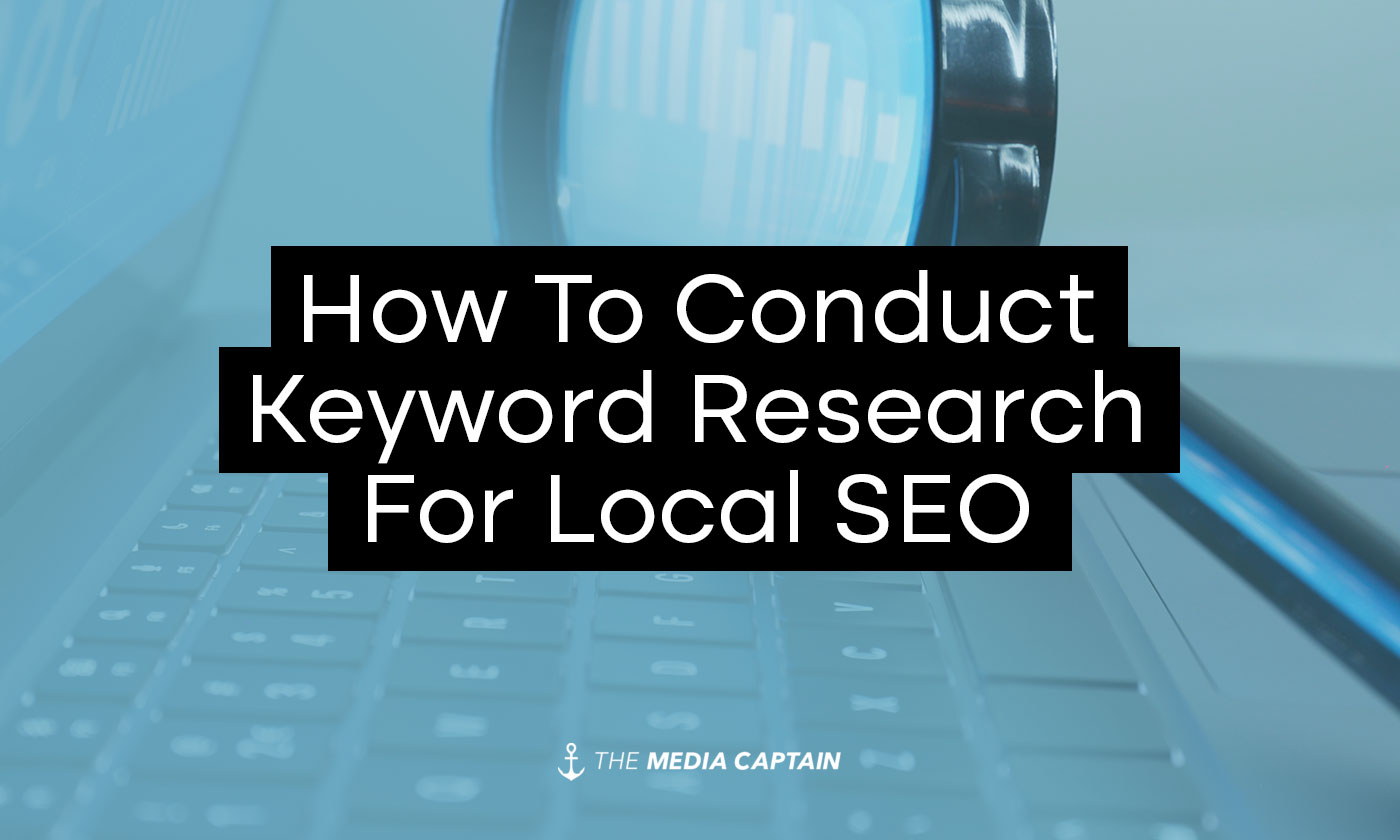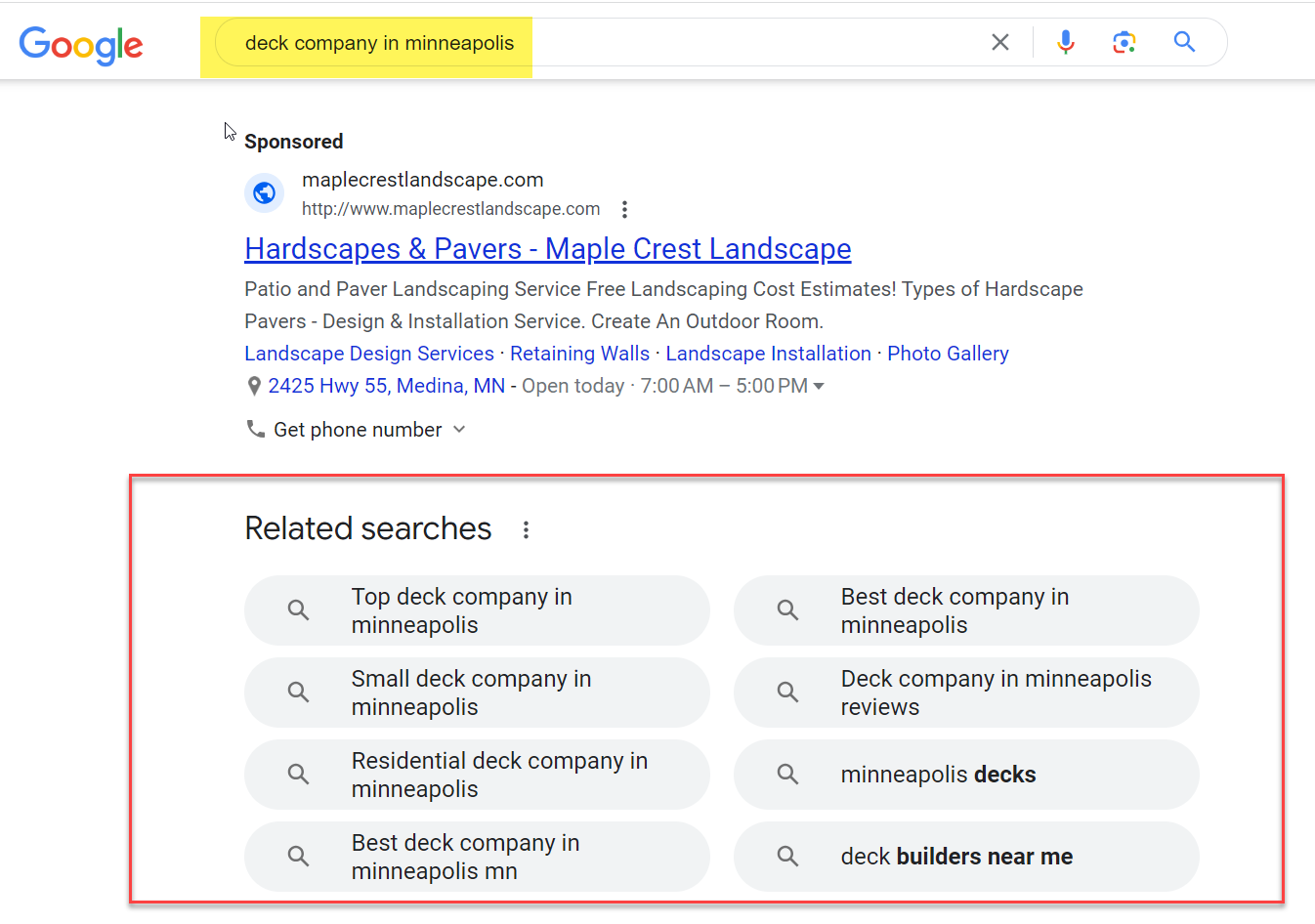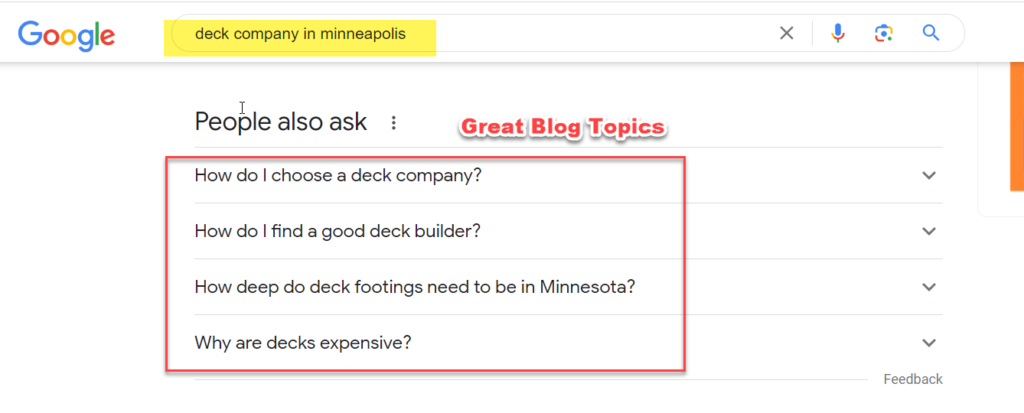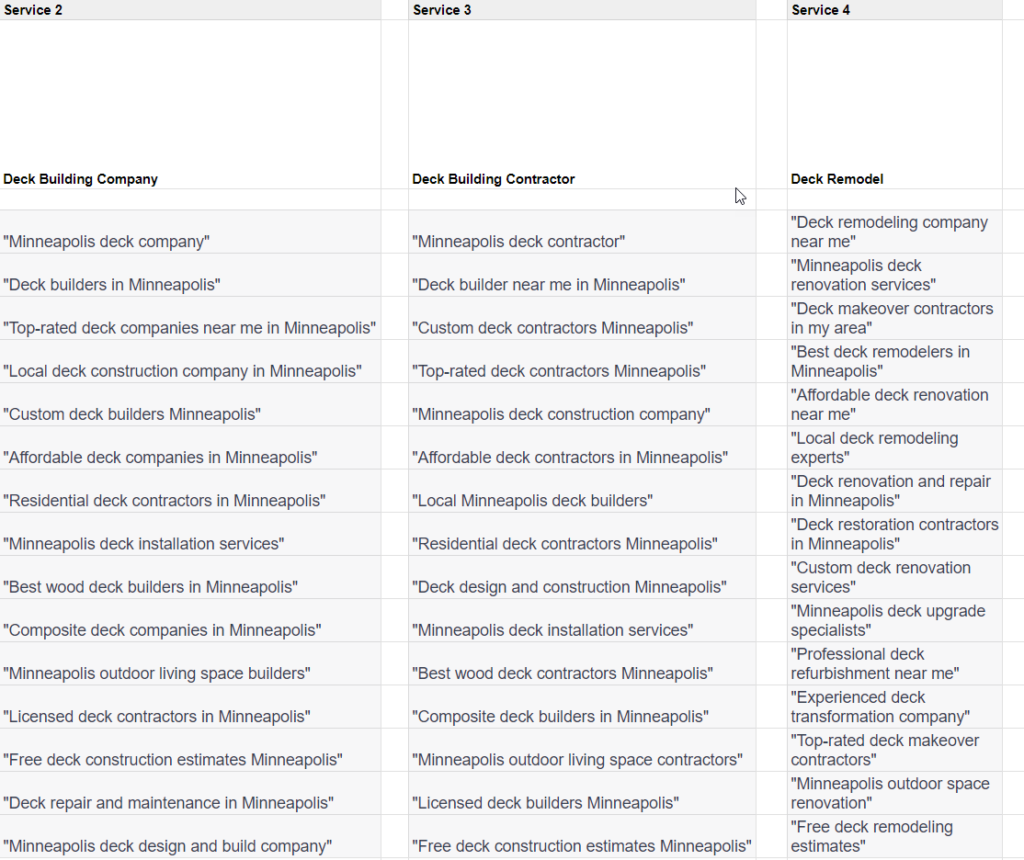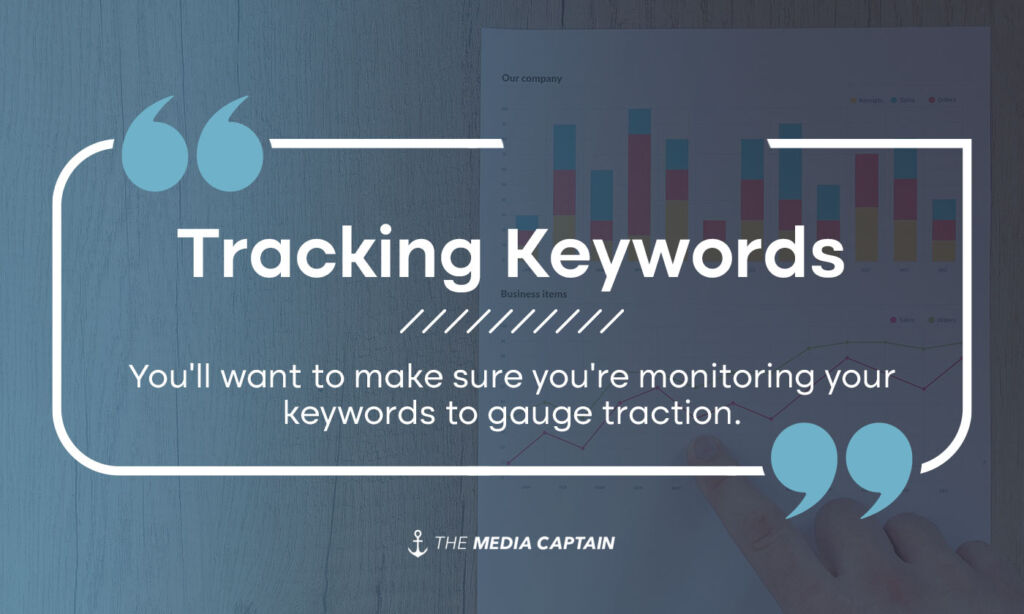What Is Keyword Research?
- Keywords are words or phrases that people type into a search engine.
- Keyword research is finding and analyzing an ideal set of keywords that potential website visitors will type into search engines like Google.
- Selecting the right keywords helps you better understand your target customers.
- Keyword research is a critical part of developing a great SEO strategy.
- Monitoring keyword rankings versus the competition allows you to find areas of opportunity within your SEO strategy.
SEMRush, WordStream, and Search Engine Journal have very detailed blogs about keyword research. I aim to help you better understand keyword research without overcomplicating the topic. I will also walk you through how our agency structures and leverages keyword research for our clients while providing you with examples.
Why Keyword Research Is Important
- The entire SEO strategy could be misdirected if someone didn’t conduct proper keyword research.
- You wouldn’t be driving the right traffic or people to your site.
- Without the proper research, you may not get any traffic to your site because there’s too much competition.
- By conducting preliminary keyword research and then continuing to monitor keywords, there will be a strategy that aligns with business initiatives based on the keywords you’re going after.
Example Using Our Agency
- The digital marketing industry is competitive, and I know I don’t have a chance to rank on the first page of Google for the term “SEO Company.”
- Since our agency is based in Ohio, we’ve decided to optimize for “Columbus SEO Company” and “Ohio SEO Company.”
- We realized the best opportunity for us to rank nationally is to write in-depth blogs on more niche, less competitive digital marketing topics like this one!
- This approach has led to a nice lead funnel dispersed between local and national clients.
- Of course, picking the right keywords for our SEO services page is important.
- There are numerous variations for how people search for SEO, such as SEO Agency, SEO Firms, etc.
- Being able to marry up keyword research with overall strategy is what separates the pretenders from the contenders when it comes to SEO.
How To Conduct Keyword Research
Identify High-Priority Keywords
- Whether you work for an agency or in-house doing SEO, it’s your job to ensure that the keywords you select align with the client’s business objectives.
- If you have off-topic or non-focused keywords, this can derail your SEO strategy.
- One of the first conversation items we have with a new client is the following:
- Getting a list of keywords they feel prospective customers would type into Google.
- Breakdown of revenue and profitability.
- We include both questions within our internal onboarding questionnaire.
- Despite having plenty of tools at our disposal, getting preliminary information from the client is very helpful since they are the true experts on their business.
Align Keywords with Business Initiatives
Below is an example of a recent internal onboarding questionnaire that our client filled out. This helps our agency acquire key information about the business’s profitability and initiatives to align with the keyword strategy and SEO strategy.
- We weren’t aware that they were a Menards deck builder
- This will play into our SEO strategy.
- We weren’t aware they no longer plan to offer repairs.
- We obviously won’t track and try to optimize pages for repair keywords.
- During conversations with the client, we often get many more details about their business that help us improve our SEO strategy.
- The preliminary information is a good starting point.
Sample Keywords from Client
Revenue Breakdown
Stay Organized And Create Keyword Structure
- Before utilizing tools to expand our keyword list, we like to stay organized and create a solid structure.
- With a Google Sheet, we list all the services we desire to rank well for.
- You’ll notice in Service 4 we list the cities/suburbs we want to rank for.
- We want to get approval that we’re targeting the correct locations.
- The approved keywords will eventually have a combination of the city within them since this is a local business.
- You’ll notice in Service 4 we list the cities/suburbs we want to rank for.
- We want the client to approve the preliminary list of keywords based on services so we don’t focus our efforts on non-relevant keywords.
 Free Tools For Keyword Research
Free Tools For Keyword Research
Plenty of free tools are available to help you expand upon keywords. Let’s dive into some of our favorites. At the end of this section, you’ll see how our preliminary keyword list turns into a much more expensive one.
ChatGPT
- ChatGPT has become a game changer for keyword research. Oftentimes, the keywords within ChatGPT are longer-tailed and higher quality than what we’ll find within paid software.
- You’ll notice we ask ChatGPT to find popular queries that someone would search for on Google to find a deck builder in Minneapolis.
- Giving ChatGPT more detailed instructions will enhance the quality of keywords.
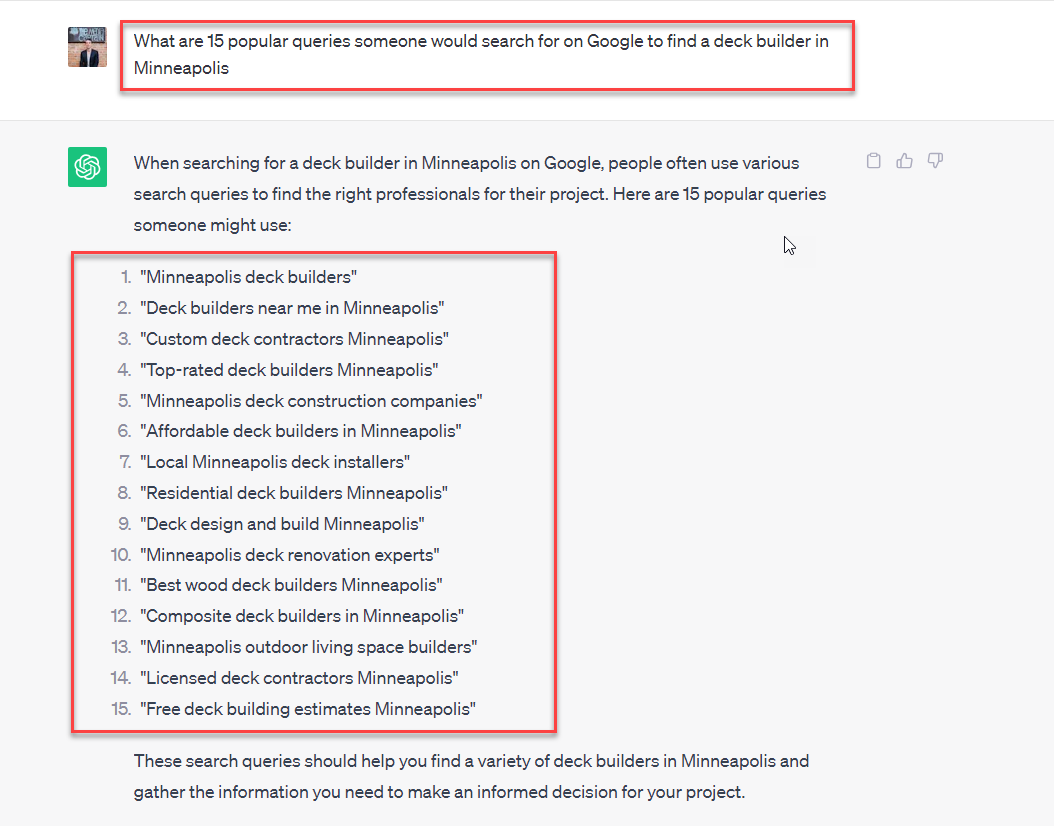
Google: Related Search
- When you conduct a Google Search, look for related searches at the bottom of Google.
- These are other popular queries people are typing into Google.
- These are great keywords to track and eventually try to rank for as part of your SEO strategy.
Google: People Also Ask
- The People Also Ask section consists of informational queries vs. commercial based on your original search.
- PAA’s (People Also Ask) are topics that could work well for blog posts or incorporating FAQ’s on key pages on your site.
Related Blog: How to Rank Better in the People Also Ask Section on Google
Gauge Competition With Google Ads Keyword Tool
- Google’s Keyword Planner gives you an idea of the competition based on average monthly searches and the top-of-page bid.
- This helps marketers like myself understand there’s medium competition for decking keywords in Minneapolis.
- If the client wonders why business is down, the three-month and YOY change shows that search volume is trending downward.
- This helps marketers like myself understand there’s medium competition for decking keywords in Minneapolis.
- For local SEO, there’s going to be limited search volume. Don’t be discouraged by this. If you rank at the top of Google in your hometown market, you can win a lot of business.
- For the sake of research, sometimes, I will remove the city from the search query to get a better glimpse of the competition and search volume.
Expanded Keyword List
- Based on leveraging the free tools above, we were able to expand upon our initial keyword list.
- We would present this once again to the client to ensure all keywords are relevant
- We will add these keywords to our SEO tracking software, SEMRush.
Note: There’s a lot of synergy between the keyword list developed for SEO and PPC services. You can normally use the same keyword list for both services.
Paid Keyword Research Software
- If you want paid software that can further elevate your keyword research, I highly recommend SEMRush.
- Our favorite features for keyword research within SEMRush are listed below. SEMRush does a great job of explaining each feature, so I’ve linked that information below. They also have great keyword tracking, which I’ll go into more detail about momentarily:
- Search Intent
- Shows the difference of commercial vs. informational intent (more on this below).
- Keyword Difficulty
- Shows the competitiveness of each keyword.
- Keyword Gap
- Compare your keywords with the keywords of your competitors.
- Organic Research
- View all of the keywords you’re currently ranking for without having to put together a keyword list.
- This is great when you’re looking for low-hanging fruit to tackle.
- Analyze a complete list of your competitor’s organic keyword rankings and pages
- View all of the keywords you’re currently ranking for without having to put together a keyword list.
- Search Intent
- Our favorite features for keyword research within SEMRush are listed below. SEMRush does a great job of explaining each feature, so I’ve linked that information below. They also have great keyword tracking, which I’ll go into more detail about momentarily:
Tracking Keywords
- Following the steps and strategy above, you should have formulated a comprehensive keyword list.
- This keyword list will lay the foundation for your SEO Strategy.
- Now that you’ve chosen your keywords, you’ll want to make sure you’re monitoring them to gauge traction.
- To monitor the progress of keyword rankings, you should sign up for software like SEMRush.
- If you’re unable to pay for a software to monitor keywords, tracking and monitoring will be more difficult, but not impossible.
- The upfront strategy is still important and if you execute properly, you should be able to see an improvement in rank and traffic. You should be able to see an uptick in traffic within Google Analytics based on the specific pages that you optimized. You can also conduct manual Google searches to see where you’re ranking, although this can be tedious and is not the best course of action.
- Below are some keywords we’re tracking for this deck-building client and their current rank on Google (outlined in red). This is a new client and they hired us because they aren’t ranking on the first page of Google. Now that we have identified their keywords and are tracking these, we can identify the opportunities to help build out our SEO strategy.
- Adding the right keywords into tracking software will hold you accountable while showing progress or regression based on SEO enhancements.
- You can track keywords versus competitors to see where you stack up.
- You can track keywords for multiple locations for your keywords.
- Example: Deck Builder Minneapolis
- We see that this client is ranking #21 and the keyword difficulty is only a 19. This is an opportunity for us! Without having a tracking software, this opportunity wouldn’t have been so clear. You’ll see based on the below that there are actually a lot of opportunities for us, which is exciting!
Other Things to Consider For Your Keyword Strategy
I thought it was important to share some other critical thinking exercises as you’re determining your most important keywords. These are questions you’ll want to ask yourself.
Informational vs. Commercial Keywords
- When developing a keyword strategy, it’s important to distinguish between commercial and informational keywords.
- According to SEMRush, informational keywords frequently (but don’t always) take the form of question keywords. This means they often start with “what,” “why,” “how,” and so on. An informational page would be something like a blog post.
- Example: Why Are Decks So Expensive?
- Informational queries don’t have as high of an intent to purchase but they are not as competitive and can still get quality traffic to your website, though these people may not be ready to pull the trigger right away.
- If the deck company wrote a blog about why decks are expensive, this could be a great resource for the company to send to cost-conscious customers, which could help in the sales process. When thinking of content, ask yourself if the content is valuable enough to share with a customer or client.
- When writing this blog, you could internally link to the page that’s being optimized for “deck builder Minneapolis” which would provide SEO value and also help to explain their pricing model.
- If the deck company wrote a blog about why decks are expensive, this could be a great resource for the company to send to cost-conscious customers, which could help in the sales process. When thinking of content, ask yourself if the content is valuable enough to share with a customer or client.
- Informational queries don’t have as high of an intent to purchase but they are not as competitive and can still get quality traffic to your website, though these people may not be ready to pull the trigger right away.
- Example: Why Are Decks So Expensive?
- People use commercial keywords to research specific brands, products, or services
- Example: Minneapolis Deck Company
- Commercial queries typically lead to traffic on money-making pages on the site. We deem a money making page as a service, product page, or any page that could directly lead to a sale.
- For example, if someone searched for “Minneapolis Deck Company,” and you had a location page on your site specific to deck installation in Minneapolis, there’s a strong likelihood this person will turn into a customer.
- On the other hand, if someone landed on the blog “Why are Decks so Expensive” first, chances are they would navigate through the website to a money making page prior to contacting for more information.
- Commercial queries typically lead to traffic on money-making pages on the site. We deem a money making page as a service, product page, or any page that could directly lead to a sale.
- Example: Minneapolis Deck Company
- Incorporating both commercial and informational keywords is healthy when developing a keyword strategy.
- This will lead to more diversified traffic throughout your site.
Competitiveness Of Keywords
- There are times when a keyword is so competitive it may not be worth optimizing for this keyword as the uphill battle is too daunting.
- Earlier we explained the example of “SEO Company” for our agency in determining that it’s not worth trying to compete for this on a national level.
- Finding lower-volume, niche keywords can lead to more instantaneous wins.
- If you are trying to rank in Butte, Montana, for a deck contractor, it will be easier than Minneapolis based on the market size and competitiveness.
Hopefully, you found this blog on keyword research for local SEO helpful! If you need local SEO support or assistance devising a strategy or executing on the SEO tasks, don’t hesitate to contact The Media Captain!


